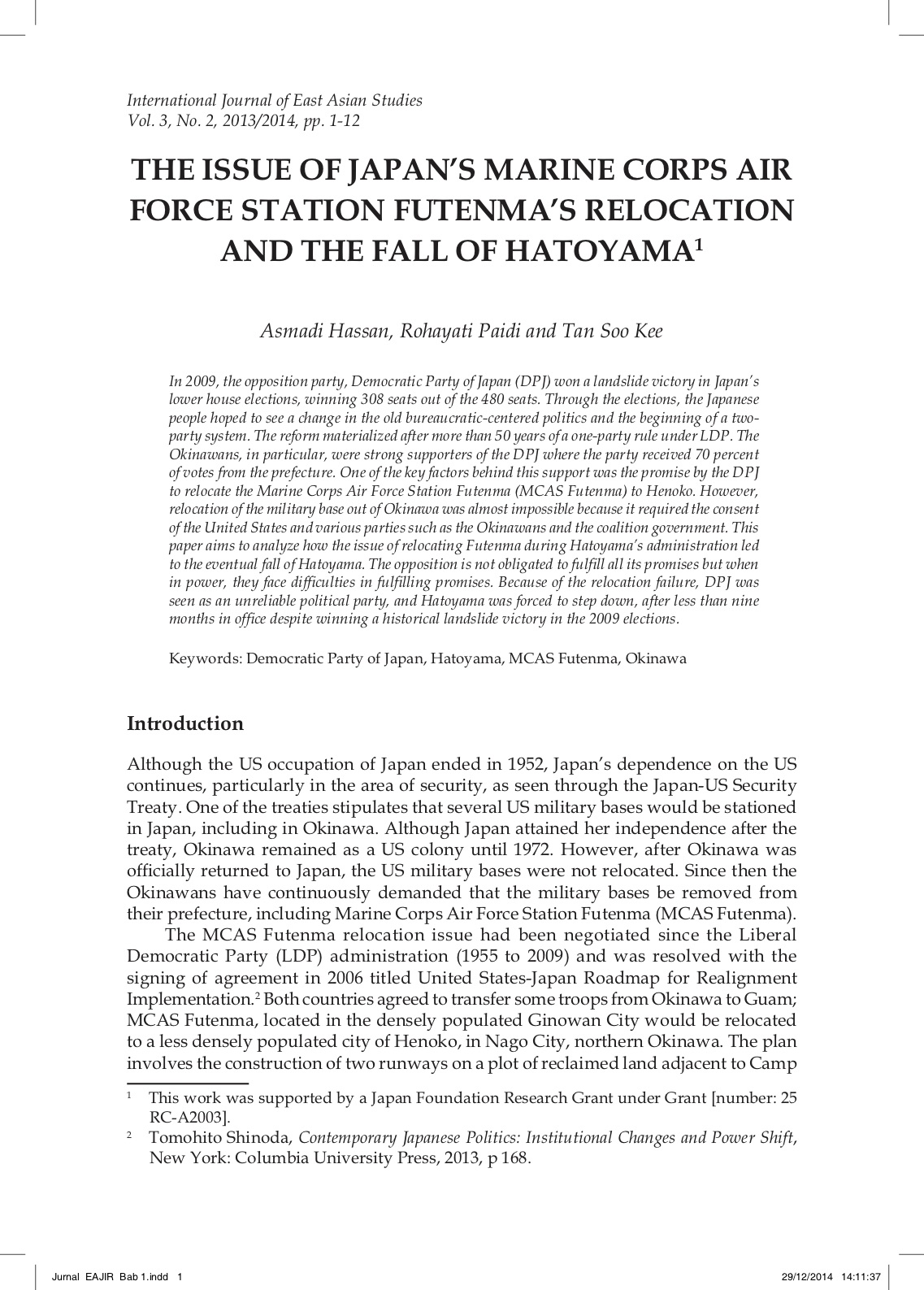The Issue of Japan’s Marine Corps Air Force Station Futenma’s Relocation and the Fall of Hatoyama
DOI:
https://doi.org/10.22452/IJEAS.vol3no2.2Keywords:
Democratic Party of Japan, Hatoyama, MCAS Futenma, OkinawaAbstract
In 2009, the opposition party, Democratic Party of Japan (DPJ) won a landslide victory in Japan’s lower house elections, winning 308 seats out of the 480 seats. Through the elections, the Japanese people hoped to see a change in the old bureaucratic-centred politics and the beginning of a two-party system. The reform materialized after more than 50 years of a one-party rule under LDP. The Okinawans, in particular, were strong supporters of the DPJ where the party received 70 percent of votes from the prefecture. One of the key factors behind this support was the promise by the DPJ to relocate the Marine Corps Air Force Station Futenma (MCAS Futenma) to Henoko. However, relocation of the military base out of Okinawa was almost impossible because it required the consent of the United States and various parties such as the Okinawans and the coalition government. This paper aims to analyze how the issue of relocating Futenma during Hatoyama’s administration led to the eventual fall of Hatoyama. The opposition is not obligated to fulfil all its promises but when in power, they face difficulties in fulfilling promises. Because of the relocation failure, DPJ was seen as an unreliable political party, and Hatoyama was forced to step down, after less than nine months in office despite winning a historical landslide victory in the 2009 election.
Downloads

Downloads
Published
How to Cite
Issue
Section
License
Copyright
Submission of a manuscript to the WILAYAH implies that the submitted work has not been published before (except as part of a thesis or report or abstract), that it is not under consideration for publication elsewhere; that all co-authors have approved its publication. The WILAYAH : International Journal of East Asian Studies adopts CC BY license. As such, we would be grateful if an acknowledgement accompanies the republication that the work was originally published in WILAYAH. The editors will ensure digital preservation of access to the journal content by the Journal depository section.
Disclaimer
Although the Department of East Asian Studies is the publisher of the WILAYAH : International Journal of East Asian Studies, the views presented in the WILAYAH are entirely those of the contributors and do not reflect the official stand of the Department of East Asian Studies. The Department does not hold itself responsible for the accuracy of any article published. Publisher and co-publishers assume no responsibility, nor by the editors for any injury and/or damage to persons or property as a result of any actual or alleged libellous statements, infringement of intellectual property or privacy rights, or products liability, whether resulting from negligence or otherwise, or from any use or operation of any ideas, instructions, procedures, products or methods contained in the material therein.





